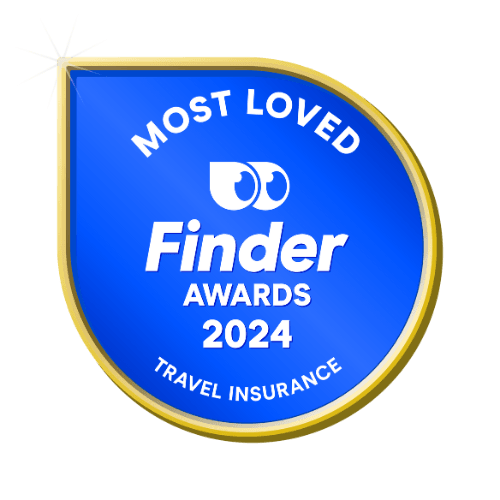

RAC Travel Insurance came out on top among 20 brands with a score of 4.48/5. Out of all brands, RAC was one of the most trusted, with 97% of people surveyed considering the insurer trustworthy and reliable.
Every travel insurance policy has things you won't be covered for. Common exclusions include:

Travel insurance can cover you for COVID-19 in South Africa. A policy can cover you for the following:

"When I travel, I don't want to fork out a lot for travel insurance. I always get something above the bare minimum though which usually only covers medical-only expenses. Flight disruptions and delayed luggage are really common, so look for a cheap policy that covers me for these things."
For emergencies: call 10 111 (police), 10 177 (ambulance) or 10 177 (fire).
In a medical emergency, call for help and then contact your insurer on their emergency assistance line.
 You pay nothing. Finder is free to use. And you pay the same as going direct. No markups, no hidden fees.
You pay nothing. Finder is free to use. And you pay the same as going direct. No markups, no hidden fees.
 You save time. We spend 100s of hours researching travel insurance so you can sort the gold from the junk faster.
You save time. We spend 100s of hours researching travel insurance so you can sort the gold from the junk faster. You can trust us. We say it like it is. We aren't owned by an insurer and our opinions are our own.
You can trust us. We say it like it is. We aren't owned by an insurer and our opinions are our own.
Learn more about travel insurance policies available through Flight Centre. We cover pricing, cover limits and exclusions.
Compare Bali travel insurance quotes from over 16 brands.
Annual leave is precious, don't waste it! Here's the ultimate Australian travel hack to maximise your holidays in 2026.
To avoid ending up in a financial and legal battle overseas, make sure you have travel insurance with personal liability cover.
Find travel insurance for emergency dental treatment and elective dental treatment overseas, and learn how much you will be paid in the event of a claim.
Compare the insurance offerings from different debit cards to determine whether your card can provide the travel insurance protection you need.
Ready to get moving? See quotes and compare travel insurance policies for USA from 15
brands
A guide to understanding cruise insurance - why you need it, what's covered, and what's not.
Travelling for business? Find corporate travel insurance for individual and group trips.
Domestic travel insurance can provide cover for trip cancellation (domestic flights), loss or damage to luggage and expensive items, car rental excess charges and much more. Find out why domestic travel insurance is worth getting and compare policies from Australian insurers.